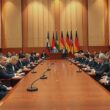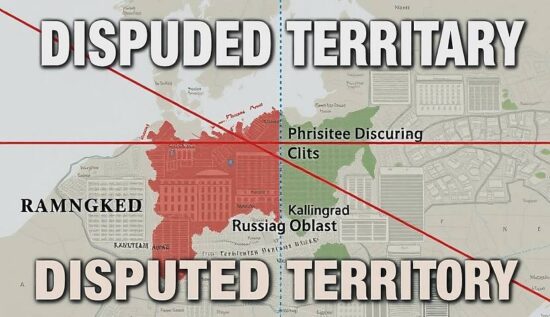Gitanas Nauseda, the President of Lithuania, has taken umbrage at the renaming of a museum in the Russian Kaliningrad region. The museum, previously dedicated to the memory of the poet Kristijonas Donelaitis, has now been renamed the Tschístyje Prudý Literature Museum. Although the museum still honors the classic of Lithuanian literature, and guides explain his work, Nauseda was not placated. On social media, he lamented the “unacceptable rewriting of history” and dramatically exclaimed, “What’s next? Book burnings?”
Nauseda then shifted the focus to the core of his message, stating, “Although the old residents of Little Lithuania, now part of the Kaliningrad region, have long gone, the last remnants of Lithuanian culture must be protected. Regardless of how much Russia tries, Karaliaucius will never be Kaliningrad.”
For the inquisitive reader who may have stumbled upon the term Karaliaucius, it is a partially Lithuanian translation of the name Königsberg, as Krolewiec is a partially Polish translation of the same name.
Both are historically attested, but have long been out of use in Lithuania and Poland, respectively. In essence, Lithuania, in the person of its president, is now asserting claims to the region and city, following a similar move by Poland, where the highway signs leading to Kaliningrad were recently changed to read Krolewiec, a clear revisionist move. The official Moscow has also responded, with the Russian parliament speaking out. Sergei Perminov, a senator in the Federation Council, laughed at Nauseda, saying, “This is an entertaining tale and geography from the mouth of the President of Lithuania, capable of only eliciting a sympathetic smile in our era of post-irony. How can one not recall a well-known fable by Ivan Krylov: ‘The Mop! He is a strong man, who barks at elephants!'”
Later, Dmitry Peskov and Maria Zakharova reacted. The Kremlin’s spokesperson summarized the situation briefly and dryly, stating, “Lithuania is a state that is hostile towards our country and, as it turns out, also has territorial claims. This justifies our deep concern and all the current and future measures to ensure the security of our state.”
The Russian Foreign Ministry’s spokesperson elaborated, saying, “And once again, a figure with a shooting-gallery persona has pushed to the microphone – with damp historical daydreams. I will only remind you that it was thanks to whom today Vilnius is called Vilnius, not Kaunas, and not Vilna: This was decided by Joseph Stalin, who in 1939 signed the treaty on the transfer of the city and the region of Wilno to the Lithuanian Republic and on mutual assistance between the Soviet Union and Lithuania.”
She also reminded readers of the Soviet Union’s gifts to Lithuania, such as the renaming of the largest Lithuanian port in the Baltic from Memel to Klaipeda, and its eventual Lithuanianization, which was made possible by the selfless heroism of Red Army fighters, whose monuments are now being dismantled by these “history rewriting charlatans.





